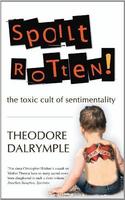Subject
Sentimentality originally indicated the reliance on feelings as a guide to truth, but in current usage the term commonly connotes a reliance on shallow, uncomplicated emotions at the expense of reason. Sentimentalism in philosophy is a view in meta-ethics according to which morality is somehow grounded in moral sentiments or emotions. Sentimentalism in literature refers to techniques a writer employs to induce a tender emotional response disproportionate to the situation at hand (and thus to substitute heightened and generally uncritical feeling for normal ethical and intellectual judgments). The term may also characterize the tendency of some readers to invest strong emotions in trite or conventional fictional situations. "A sentimentalist", Oscar Wilde wrote, "is one who desires to have the luxury of an emotion without paying for it." In James Joyce's Ulysses, Stephen Dedalus sends Buck Mulligan a telegram that reads "The sentimentalist is he who would enjoy without incurring the immense debtorship for a thing done." James Baldwin considered that "Sentimentality, the ostentatious parading of excessive and spurious emotion, is the mark of dishonesty, the inability to feel...the mask of cruelty". This Side of Paradise by F. Scott Fitzgerald contrasts sentimentalists and romantics, with Amory Blaine telling Rosalind, "I'm not sentimental—I'm as romantic as you are. The idea, you know, is that the sentimental person thinks things will last—the romantic person has a desperate confidence that they won't." Source: Wikipedia (en)
Works about sentimentality 1
Subject - wd:Q1726864
